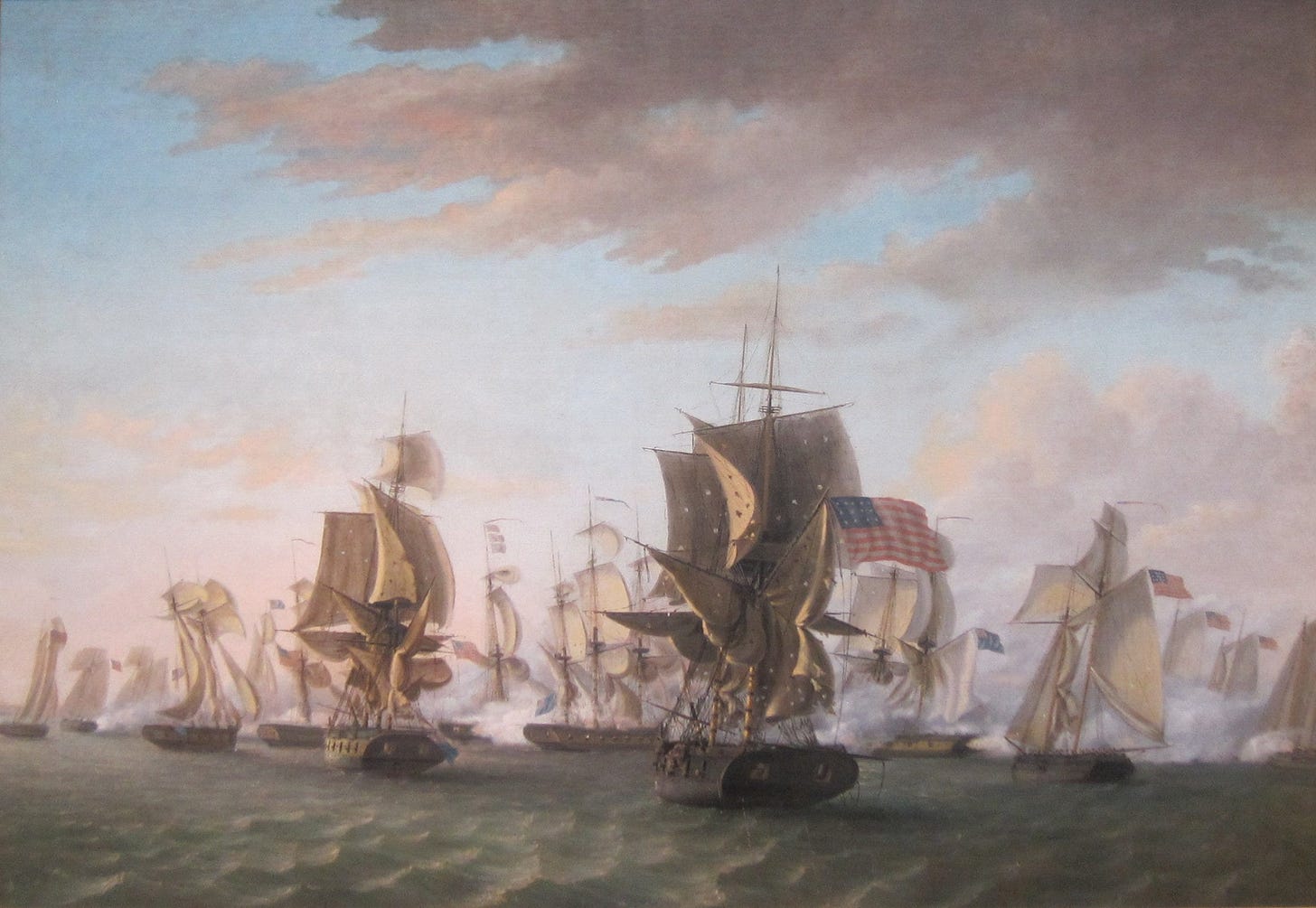TODAY IN HISTORY
September 10, 1813: In one of the largest naval engagements in the War of 1812, a US fleet defeats a smaller British fleet in the Battle of Lake Erie. This was a significant strategic victory, in that it gave the US control of the lake and enabled both the recapture of Detroit in late September and the US defeat of Tecumseh’s confederacy at the Battle of the Thames in early October. The victory also prompted US Commodore Oliver Perry’s famous message to General William Henry Harrison: “we have met the enemy and they are ours.”
September 10, 1942: In World War II, Allied forces undertake an amphibious landing at Mahajanga, in northern Madagascar, kicking off their final push to take that island from Vichy France. An initial Allied invasion of Madagascar in May had stalled, but over the ensuing months the British military was able to bring in reinforcements and to seize the nearby island of Mayotte for use as a base. The overwhelmed French forces resisted the renewed Allied push for several weeks but by early November Madagascar was in Allied hands. The victory was important for the Allied war effort as it prevented Madagascar from being used by the Japanese Navy to project power into the western Indian Ocean and threaten India as well as the “Persian corridor” used to funnel arms to the Soviet Union. The campaign also demonstrated the potential effectiveness of combined sea, land, and air operations.
MIDDLE EAST
SYRIA
At Foreign Policy Gönül Tol argues that recent tensions between Damascus and Syria’s Druze community may have the Turkish government feeling a bit of buyer’s remorse:
When Syrian dictator Bashar al-Assad was toppled late last year, it looked like a golden opportunity for Turkish President Recep Tayyip Erdogan. For more than a decade, the war next door had burdened Ankara with problems that it could not fix: millions of Syrian refugees straining domestic politics, U.S.-backed Kurdish militias entrenching along Turkey’s border, and a battlefield dominated by Russian and Iranian influence that left Ankara exposed to Moscow’s and Tehran’s whims.
Assad’s fall, especially at the hands of forces close to Turkey, seemed to promise relief on every front—and it could not have come at a better time. Erdogan and his nationalist allies had just reopened dialogue with Kurdistan Workers’ Party (PKK) leader Abdullah Ocalan to secure the pro-Kurdish party’s support in parliament, a maneuver aimed at clearing the way for Erdogan’s reelection bid in 2028. Undermining the PKK’s Syrian wing would improve the odds of a breakthrough in the dialogue with Ocalan.
The calculation in Ankara was that with a friendly government in Damascus, Turkey could reshape Syria to its liking. Eight months on, however, the post-Assad landscape has delivered the opposite—a Syria that is creating bigger headaches for Ankara than Assad ever did.



